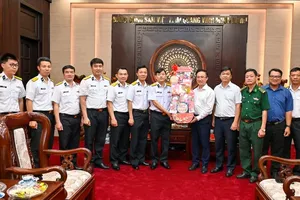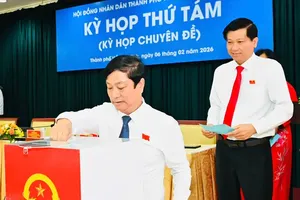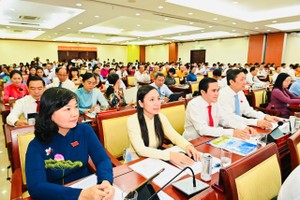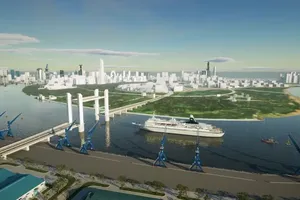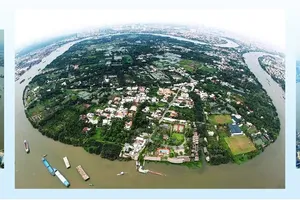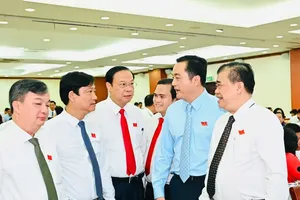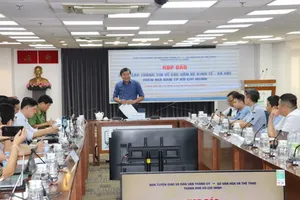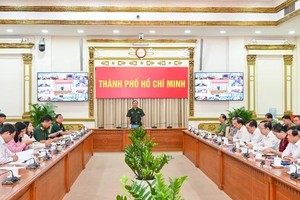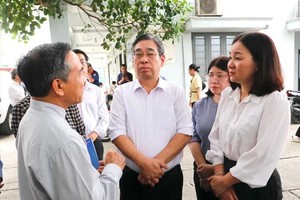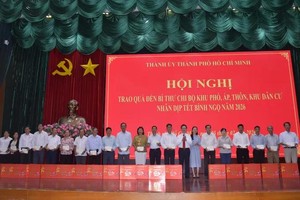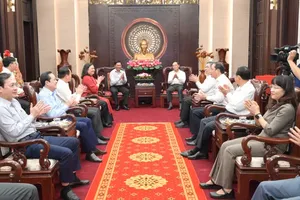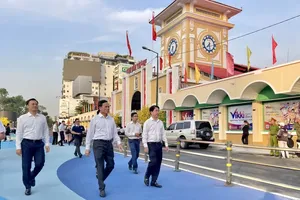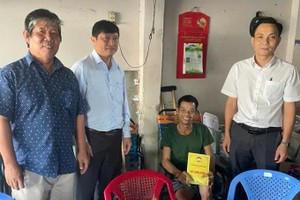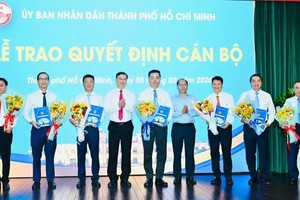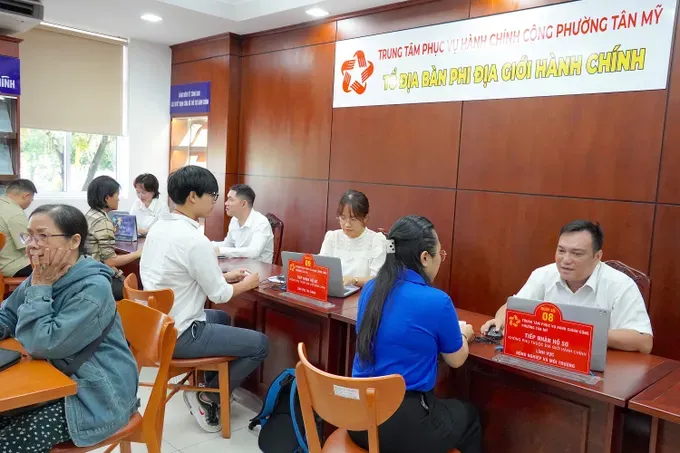
For Pham Huu Thanh, a resident of Linh Xuan ward, the new system has been a game-changer. After losing the Certificate of Land Use Rights for his property in Xuyen Moc Commune, he visited the Public Administration Service Center in Thu Duc Ward to inquire about the reissuing process.
He left delighted after a thorough consultation. “In the past, any procedure related to my property meant I had to travel all the way to Xuyen Moc District (a region formerly part of Ba Ria – Vung Tau Province), a trip that would take several days to complete”, Thanh recounted. “Now, I can just go to the nearest location-independent service team. It’s incredibly convenient.”
Director Le Thuong Duy Lap of the Thu Duc Ward Public Administration Service Center reported that in its first month, his team has officially processed two cases and provided procedural consultations for 140 individuals. One of the cases, a request to reissue a lost land use certificate, is currently in progress.
Similarly, the service team at the Vung Tau Ward Public Administration Service Center has advised over 50 citizens and businesses on matters related to land, construction, and business registration, and has formally processed three cases. In Tan My and Binh Thoi wards, these new service points are quickly becoming go-to destinations for residents seeking guidance.
To ensure smooth operations, these teams are fully equipped with the necessary technology. The civil servants assigned to these posts are lauded for their punctuality and deep expertise. Vo Minh Trung, an official with the HCMC Department of Construction, commutes daily from Tan Hung Ward to Ba Ria Ward. Despite the challenging journey, he remains committed to serving the public efficiently.
Likewise, his colleague Nguyen Ngoc An Khang was dispatched to the team in Vung Tau Ward. To better serve the public, he only returns home once or twice a week, dedicating his first month primarily to guiding residents through complex procedures.
Despite these successes, some locations report low caseloads, with their activities being limited mostly to consultations. Deputy Director Bui Truong Giang of the Saigon Ward Public Administration Service Center noted that his team has yet to process a single case since deploying in early August.
“One of the main reasons is the proximity of major government department headquarters to Saigon Ward”, he explained. “Residents and businesses often find it just as easy to go directly to the source.”
Meanwhile, Director Tran Thi Bich Van of the Vung Tau Ward Center pointed to a few operational snags. “Some of our staff are still getting familiar with the new dossier circulation protocols, which can lead to some hesitation when guiding residents”, she admitted. “Additionally, some of our software systems aren’t fully integrated with HCMC’s city-wide ‘one-stop shop’ platform.”
Her ward has formally requested that authorities fully configure all new administrative procedures on the digital systems to facilitate a smoother online submission process.
Director Vo Thi Trung Trinh of the HCMC Digital Transformation Center affirmed that the city’s leadership is closely overseeing the project. “To ensure all administrative services, especially these new location-independent ones, operate seamlessly, a synchronized IT infrastructure is a top priority”, she stated.
Her center is currently coordinating the necessary infrastructure investments. “According to our timeline, within about two months, the city will have a unified and synchronized IT infrastructure connecting all 168 wards, communes, and special administrative regions, which will greatly support and streamline operations.”
Leaders in many localities also stress the need for a more robust public awareness campaign. At present, many citizens are simply unaware of the new service, and old habits of going directly to a department’s main office are hard to break.
HCMC is currently in the first phase of this initiative, covering 1,336 of the 2,168 procedures available at the city’s one-stop-shop service points. HCMC People’s Committee Chairman Nguyen Van Duoc has set an ambitious goal. 100 percent of administrative procedures are to be handled through this location-independent model by the end of 2025.
To achieve this, the city is rolling out several solutions. The HCMC People’s Committee Office and the Digital Transformation Center are co-developing a new digital governance operating system to connect all departments and local authorities.
The city also plans to establish three major Public Administration Service Centers, one in the city center and one in each of the regions corresponding to the former Binh Duong and Ba Ria - Vung Tau provinces. These, combined with the 38 existing field teams, will create a network of 41 service points.
Furthermore, Chairman Nguyen Van Duoc has directed the Department of Construction to reassign surplus inspectors to the grassroots level and has instructed other departments to second their officials to local wards to bolster the capacity for processing these new location-independent procedures.
